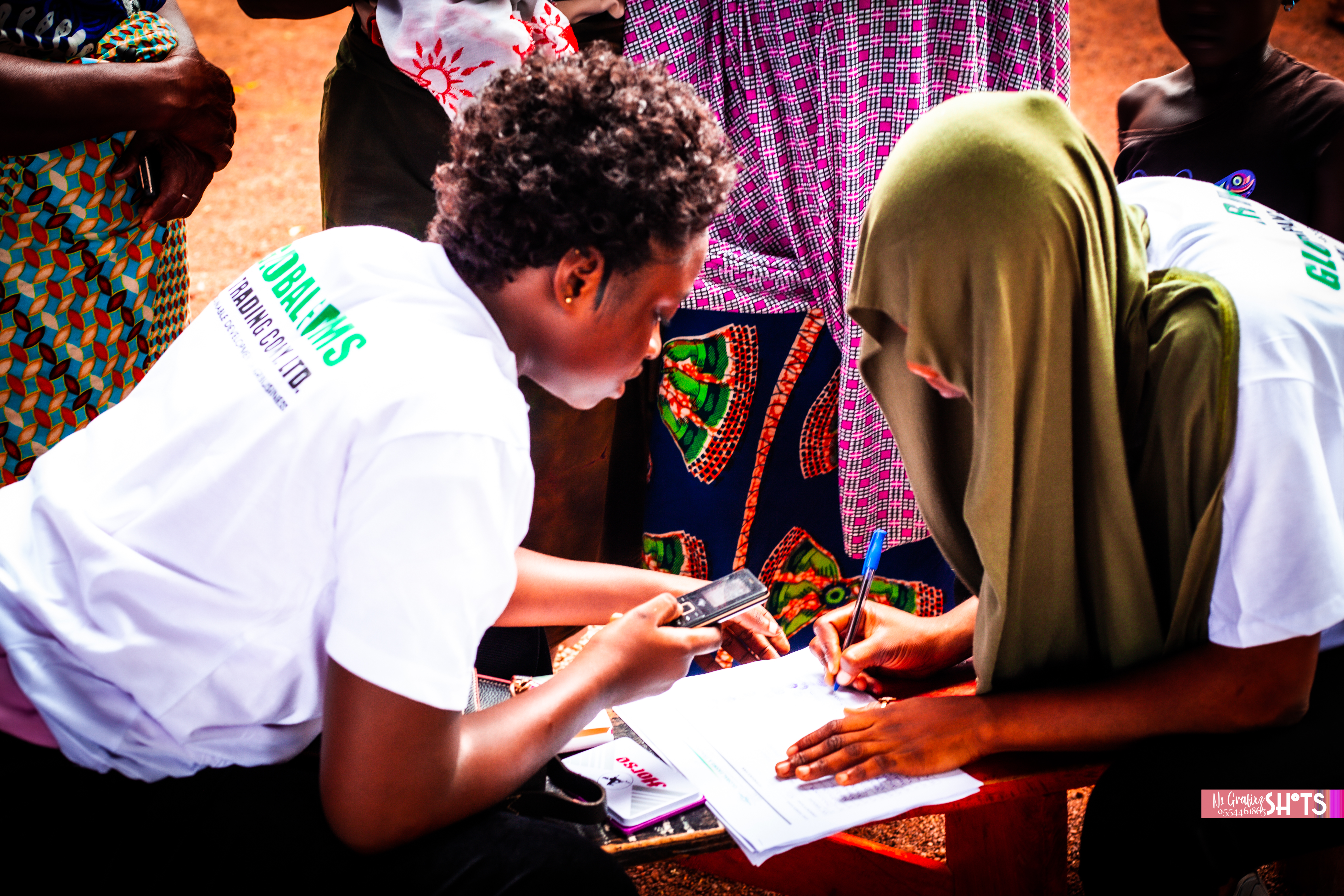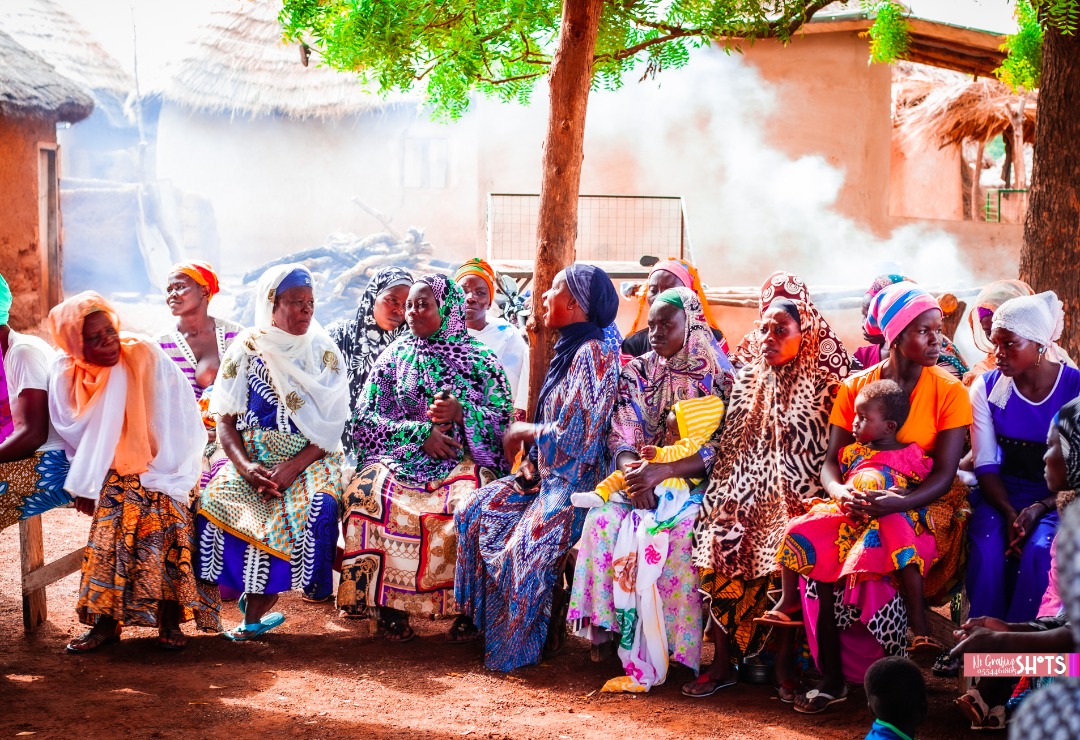Farmers taking up sustainable agricultural practices to adapt to the changing climate in Ghana
Organization: Global Farms & Trading Company Limited
Donor: GCA, AFDB
Beneficiaries: 1,500 directly; 3,000 indirectly
Photo credit: Global Farms & Trading Company Limited
In Ghana, climate change induced problems such as changing rainfall patterns and the increased threat and frequency of extreme weather events – from river flooding and water scarcity to extreme temperatures and wildfires – pose serious challenges for farming communities. With a large proportion of the workforce dependent on smallholder rainfed agriculture, the need to adapt agricultural systems and build more resilient smallholder farming communities is pressing.
Addressing this need is at the heart of the mission of Global Farms & Trading Company, a limited liability company based in the city of Tamale, in the north of Ghana. Global Farms is a producer of maize, rice and soybeans, and promotes both adaptation and resilience among smallholder farmers. Through a YouthADAPT grant, funded by GCA and the African Development Bank, and assisted by partners Savannah Zone Agricultural Productivity Improvement Project and the Ministry of Food and Agriculture, the company initiated a wide-ranging project in the Northern, North East and Savanna regions to build capacity, provide access to quality inputs and promote market access.

First, in terms of capacity building, smallholder farmers were trained on how best to adopt agricultural conservation practices, the aim being to improve the soil structure, enhance water retention, organic matter content and fertility, and result in higher and more stable yields. Second, to provide access to quality inputs the company assisted the farmers in the procurement of high quality and climate tolerant seeds to improve their production yields. Additional inputs included proper soil nutrients that would also contribute to increased productivity. Third, the company supported the smallholder farmers by promoting market access by transporting, storing and selling farmers’ produce to bulk buyers, and negotiating better prices while also reducing farmers’ transport and marketing costs. In doing so, this acted as a catalyst for smallholder farmers to engage in sustainable farming practices, in addition to farming land that would otherwise have been simply left idle.
Central to the project was the identification and involvement of stakeholders across the local communities, including chiefs and opinion leaders, community members and other relevant local groups. These individuals and groups then received local capacity building training to enable them to lead the project effectively at a local level. In addition, working groups and advisory committees were established to provide input and guidance, which in turn also fostered collaboration between the different actors in executing the project. In total, the project team consisted of 150 people, which included both staff from Global Farms and members of the farming communities that were recruited to be part of the planning and working committees.
To help generate interest, the local Gonja, Dagbani and Mampruli languages were used to communicate the aims of the project to the farming communities, with this outreach work supported by visual aids in the form of diagrams and videos. Regular project progress updates were then shared with the community and stakeholders to ensure transparency and continued engagement.
The project helped to improve people’s lives in a number of ways, explains CEO of Global Farms & Trading Company Limited, Mahama Saamani Elisha:
“By adopting climate-resilient farming and conservation agricultural techniques and having access to quality and improved seeds, smallholder farmers have increased their production volumes and yield. Farmers now get competitive market prices for their produce, thereby improving both their economic standards and that of their families.”

Global Farms’ work to help modernize farming in local communities proved popular with the local community adds Mahama: “As a result of the impact of the project Global Farms was given a local name ‘Wunpini’, which means ‘blessing, by the secretary of the women group involved in the program.” In total, around 1,500 smallholder farmers – the majority of which women – benefitted directly from the project through capacity building and training, input supply and field demonstrations. This emphasis on skills development and training extended to people with disabilities, for whom skills training sessions in soap making, food processing and storage methods were held. A further 1,500 individuals benefitted indirectly.
“The biggest challenge for the project team was that of communication and coordination in an area that is so culturally and geographically diverse, which also posed a challenge during monitoring and evaluation,” says Mahama. “In addition, sustainability remains a challenge as a long-term funding solution is needed to keep the project running.”
While the project has yet to be replicated elsewhere, Global Farms hopes to expand to cover other districts, regions and even nationally, if and when a sustainable funding source can be secured.